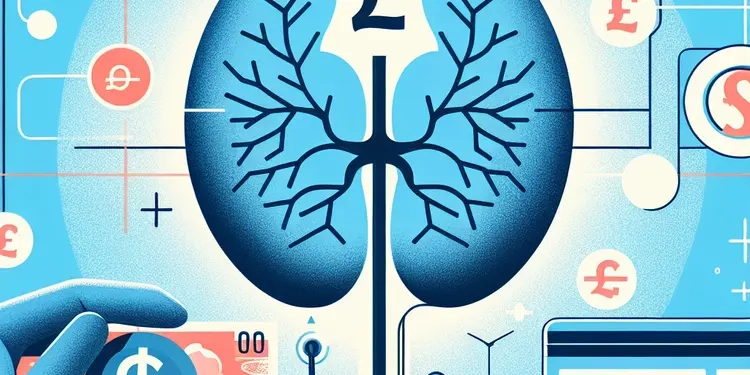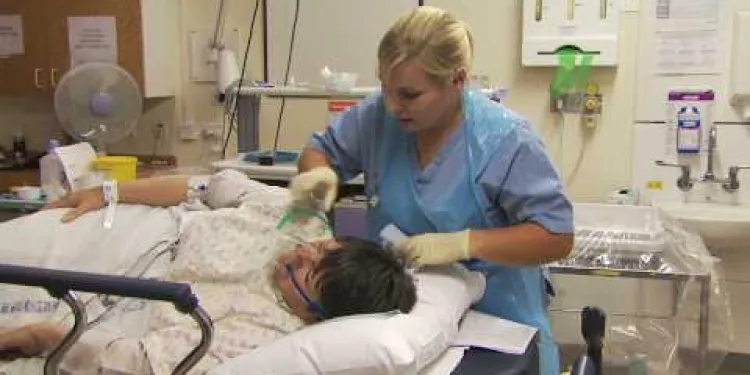
Find Help
More Items From Ergsy search
-

Will I feel pain during the procedure?
Relevance: 100%
-

Endoscopy Procedures | Colonoscopy
Relevance: 65%
-

Is a facelift painful?
Relevance: 64%
-

Is a mammogram painful?
Relevance: 63%
-

Is a C-section a common procedure in the UK?
Relevance: 59%
-

Bournemouth Digestive Diseases Centre: Gastroscopy Procedure (Subtitled)
Relevance: 57%
-

Having an operation or procedure at the Royal Free London
Relevance: 57%
-

Can a facelift be combined with other procedures?
Relevance: 56%
-

Is the womb lining test painful?
Relevance: 55%
-

Is a womb lining test painful?
Relevance: 55%
-

What are minimally invasive procedures for BPH?
Relevance: 54%
-

Is screening painful or risky for my child?
Relevance: 54%
-

Anaesthetic procedure for elective caesarean section (C section)
Relevance: 53%
-

Will I feel pain during the hair transplant procedure in Turkey?
Relevance: 52%
-

Foot Pain
Relevance: 51%
-

Is impetigo painful?
Relevance: 51%
-

Are chiropractic treatments painful?
Relevance: 50%
-

What should I do if I experience severe pain or bleeding after the test?
Relevance: 50%
-

NHS 24 | How to get help for dental pain
Relevance: 49%
-

What is the procedure for getting Turkey Teeth?
Relevance: 49%
-

Bournemouth Digestive Diseases Centre: Endoscopy Procedure
Relevance: 49%
-

Shoulder pain | NHS
Relevance: 48%
-

Shoulder pain | NHS
Relevance: 48%
-

Heel pain | NHS
Relevance: 48%
-

How long does the Turkey Teeth procedure take?
Relevance: 47%
-

What is the most common surgical procedure for BPH?
Relevance: 47%
-

What is the procedure for receiving mail?
Relevance: 47%
-

How do chiropractors treat back pain?
Relevance: 47%
-

Can I check the waiting time for a specific procedure online?
Relevance: 47%
-

Can flesh-eating disease occur after common surgical procedures?
Relevance: 46%
-

How can I maintain my Turkey Teeth after the procedure?
Relevance: 46%
-

Mechanical Lower Back Pain
Relevance: 46%
-

Advice on neck pain and whiplash
Relevance: 45%
-

Stomach ache and abdominal pain
Relevance: 45%
-

Period pain (dysmenorrhoea) - BSL
Relevance: 45%
-

Shoulder subacromial shoulder pain
Relevance: 45%
-

Shoulder pain | NHS
Relevance: 45%
-

How to treat back pain | NHS
Relevance: 43%
-

How to deal with period pain | NHS
Relevance: 43%
-

How to deal with period pain | NHS
Relevance: 43%
Understanding Pain Management During Medical Procedures
When contemplating a medical procedure, a common concern among patients is whether they will experience pain. This apprehension is understandable, as pain can significantly affect one's perception and experience of medical care. However, advancements in medicine have led to effective pain management techniques to ensure patient comfort.
Assessment Before the Procedure
Prior to any procedure, healthcare professionals prioritize understanding a patient's pain tolerance and history with pain management. This is crucial in formulating a tailor-made plan. Patients are encouraged to express their concerns and any previous experiences with pain. This collaborative approach helps in selecting the appropriate type and level of anaesthesia or sedation.
Anaesthesia: Local, Regional, and General
Depending on the procedure, anaesthesia may be used to block pain. There are three main types of anaesthesia:
Local anaesthesia: Numbs a small, specific area of the body. It is often used for minor procedures and ensures the patient remains awake but comfortable.
Regional anaesthesia: Blocks pain in a larger area of the body. A common form is an epidural, often used during childbirth. Patients may be awake or slightly sedated but should not feel pain in the affected region.
General anaesthesia: Induces a state of controlled unconsciousness. Used for more complex procedures, it ensures the patient is asleep and completely unaware during the operation.
Sedation Options
In addition to anaesthesia, sedation can be administered to help relax the patient. Levels of sedation vary from minimal, where the patient remains awake, to deep sedation, where the patient is on the edge of consciousness but can still be roused. Sedation is often used in conjunction with local or regional anaesthesia to enhance comfort.
Managing Discomfort Post-Procedure
While anaesthesia and sedation effectively manage pain during the procedure, some discomfort may be expected as the anaesthesia wears off. Healthcare teams typically provide guidelines for post-operative care, including pain relief medication, to minimize discomfort during the recovery period.
Open Communication with Healthcare Providers
Open dialogue with healthcare providers about any pain-related fears is crucial. Patients should feel empowered to discuss their pain management plan and any concerns they may have. This communication ensures that healthcare providers can address specific needs and make necessary adjustments to enhance comfort.
Conclusion
While the thought of pain during a medical procedure can be daunting, comprehensive pain management strategies are in place to ensure patient comfort. Through personalized care plans, the use of anaesthesia and sedation, and open communication, healthcare providers strive to make medical procedures as pain-free as possible for patients in the UK.
Understanding Pain Management During Medical Procedures
When thinking about a medical procedure, many people worry about pain. This worry is normal because pain can affect how we feel about medical care. But, doctors have new ways to manage pain and make sure patients feel comfortable.
Assessment Before the Procedure
Before any procedure, doctors need to know how much pain you can handle and your past pain experiences. This helps them make a plan just for you. It is important to tell them your concerns and any past pain experiences. Working together helps choose the right medicine to make you feel comfortable.
Anaesthesia: Local, Regional, and General
To stop pain during a procedure, doctors use anaesthesia. There are three main types:
Local anaesthesia: This numbs a small part of your body. You stay awake, but you don’t feel pain. It is used for small procedures.
Regional anaesthesia: This blocks pain in a bigger part of your body. An example is an epidural, used during childbirth. You might be awake or somewhat sleepy, but you won’t feel pain in the area.
General anaesthesia: This makes you fully asleep for big procedures. You won’t be aware or feel any pain.
Sedation Options
Sedation helps you relax during a procedure. It can range from being awake but calm to almost asleep. Sedation is often used with local or regional anaesthesia to make you even more comfortable.
Managing Discomfort Post-Procedure
After the procedure, you might feel some discomfort as the anaesthesia fades. Your healthcare team will give you advice and medication to help you feel better as you recover.
Open Communication with Healthcare Providers
It is important to talk to your doctors about any worries about pain. You should feel free to discuss your pain management plan and any concerns. This helps doctors understand your needs and change the plan if needed to make you more comfortable.
Conclusion
Feeling worried about pain during a medical procedure is normal, but there are ways to manage it. With personal care plans and open communication, healthcare providers aim to make procedures as painless as possible for patients in the UK.
Frequently Asked Questions
Will I feel pain during the procedure?
Most procedures are designed to minimize pain. Local anesthesia is often used to numb the area.
How do doctors ensure I won't feel pain during the procedure?
Doctors use anesthetics to numb the area or provide sedation to help you relax and feel comfortable.
What types of anesthesia might be used to prevent pain?
Local, regional, or general anesthesia may be used, depending on the procedure and its complexity.
Is it normal to feel anxious about potential pain during the procedure?
Yes, many people feel anxious about procedures, and it's important to talk to your doctor about any concerns.
Can I talk to my doctor about pain management options for my procedure?
Absolutely. Discussing pain management options with your doctor can help ease anxiety and ensure better preparation.
What should I expect in terms of discomfort during the procedure?
You might feel some pressure or movement, but significant pain is typically managed and prevented.
Will I be awake during the procedure, and will that affect pain?
It depends on the procedure. Local or regional anesthesia allows you to be awake without feeling pain.
Are there procedures where pain is unavoidable?
Most procedures today have effective pain management strategies, though some discomfort might be expected.
How long will the numbness last after the procedure?
Numbness from local anesthesia typically lasts a few hours after the procedure.
What if I feel pain during the procedure?
If you experience pain, alert the healthcare team immediately as they can adjust anesthesia or provide additional medication.
Could certain medical conditions affect how much pain I feel?
Yes, conditions like anxiety or nerve disorders can influence pain perception, so inform your doctor about your history.
Is post-procedure pain common?
Some discomfort post-procedure is common, but severe pain is unusual and should be reported to your doctor.
How can I mentally prepare to deal with pain or discomfort during the procedure?
Understanding the procedure, asking questions, and discussing concerns with your doctor can help you mentally prepare.
Are there alternative pain management options if I have a low pain tolerance?
Yes, discuss options such as different types of anesthesia or additional pain relief methods with your doctor.
What role does sedation play in pain management?
Sedation can help relax you and reduce anxiety, making you less aware of the procedure and any discomfort.
Are there any risks associated with anesthesia for pain management?
Anesthesia is generally safe, but there are risks which your healthcare provider will discuss with you prior to the procedure.
Will I need to arrange for someone to drive me home post-procedure due to anesthesia?
Yes, if sedation or general anesthesia is used, you will likely need someone to drive you home.
Can pain management techniques vary by procedure?
Yes, pain management is tailored to the specific procedure and patient needs.
What post-procedure options exist if I experience pain?
Pain can often be managed with prescribed or over-the-counter medications, ice, rest, and following your doctor's instructions.
Can I take painkillers before the procedure to prevent feeling pain?
You should only take medications as advised by your doctor prior to a procedure.
Will the procedure hurt?
Doctors try hard to make sure things do not hurt. They use medicine to make the area numb so you don't feel pain.
How do doctors make sure I don't feel pain during the procedure?
Doctors use medicine to stop you from feeling pain. It is called anesthesia. Here is how it works: - **Numbing Medicine:** Doctors might rub a special cream or give you a small injection. This medicine helps the area not feel anything. - **Sleep Medicine:** Sometimes, doctors give you medicine that makes you sleep. You won't feel anything because you are asleep. If you have worries, you can: - Ask your doctor questions. - Take deep breaths to feel calm. - Bring a comfort item, like a favorite toy or blanket. It's okay to talk to your doctor about how you feel. They are there to help you feel safe and comfortable.Doctors use special medicines to make the area feel numb. This helps you not feel pain. They might also give you medicine to help you relax and stay calm.
What kinds of medicine can stop pain during surgery?
The kind of medicine used to stop pain depends on the type of surgery. It can be for a small area, a bigger area, or the whole body.
Is it okay to feel scared about pain during the procedure?
It's normal to feel scared or worried about feeling pain when you have a medical procedure. You can tell the doctor or nurse about your worries.
Here are some ways to feel better:
- Breathe slowly and deeply.
- Think about happy things.
- Have someone you trust with you.
Many people feel worried about going to the doctor. You should tell your doctor if you are feeling scared or have questions.
Can I ask my doctor about ways to help with pain for my procedure?
You can ask your doctor how to make pain better for your procedure. They can tell you about different ways to help with pain. This can make you feel more comfortable.
Here are some things that might help:
- Bring a friend or family member with you to talk to the doctor.
- Write down your questions on paper before you go.
- Use pictures or drawings to help explain your feelings.
Yes, for sure! Talking to your doctor about ways to manage pain can help you feel less worried and get ready better.
Will it hurt during the procedure?
You might feel a little pushing or moving, but bad pain should be stopped and taken care of.
Will I be awake when they do the procedure, and will it hurt?
It depends on what the doctor needs to do. Local or regional anesthesia means you stay awake, but you don't feel any pain.
Are there times when pain cannot be stopped?
Sometimes, we might go through things that hurt. Doctors try hard to stop pain, but some pain might still happen. There are ways to help, like taking deep breaths or squeezing a soft toy. Always talk to the doctor or nurse about how you feel.
Today, doctors have good ways to stop pain, but you might still feel a little uncomfortable.
How long will the numb feeling last after the procedure?
The feeling from the numbing medicine usually goes away a few hours after the treatment.
What can I do if it hurts during the procedure?
If you feel pain, tell the nurse or doctor right away. They can give you more medicine to help stop the pain.
Can some health problems change how much pain I feel?
Yes, things like feeling very worried or having nerve problems can change how you feel pain. It's important to tell your doctor if you have these things.
Do you feel pain after treatment?
It's normal to feel a little sore after the treatment. But if you hurt a lot, tell your doctor right away.
How can I get ready in my mind to feel pain or discomfort during the procedure?
Here are some easy ways to help you:
1. Take Deep Breaths: Breathe in slowly and breathe out slowly. This can help you feel calm.
2. Think of Something Nice: Imagine a place you like or something that makes you happy to distract yourself.
3. Talk to Someone: Tell a friend or family member how you are feeling. They can give you support.
4. Listen to Music: Bring headphones to listen to your favorite songs. This can help take your mind off the pain.
5. Use a Stress Ball: Squeeze a soft ball in your hand. This can help you feel better.
Remember, it's okay to feel nervous, but these steps can help you feel more comfortable.
It helps to talk to your doctor about what will happen. Ask questions and talk about anything that worries you. This will help you get ready in your mind.
What can I do if I feel pain easily and need help?
If you find that pain bothers you a lot, there are different ways to feel better. - **Talk to your doctor**: You can ask a doctor for advice. - **Use cold or warm packs**: Sometimes a cold or warm cloth can help. - **Do breathing exercises**: Deep breaths can help you feel calm. - **Try gentle stretches**: Moving slowly can make you feel better. - **Listen to calming music**: Music can help you relax. - **Use a soft blanket**: A cozy blanket can make you feel safe. You can try these ideas to manage pain better. Always ask your doctor what is best for you.Talk to your doctor about different ways to stop pain. There are different types of medicine that can help. Ask which is best for you.
How does sedation help with pain?
Sedation makes you feel sleepy and calm.
It helps to stop pain by relaxing the body.
Doctors use it to make you feel better during treatments.
If you are scared, sedation can help you feel less worried.
Talking to your doctor can help you understand more.
Using pictures or videos can make it easier to learn.
You can also use apps that read text out loud.
Sedation helps you feel calm and less worried. It makes you less aware of what is happening, so you feel less uncomfortable.
Is anesthesia safe for managing pain?
Anesthesia helps stop pain during an operation. But is it safe?
There are some risks. These risks depend on things like age, health, and the type of anesthesia.
Before using anesthesia, doctors talk to you about the safest options. This keeps you safe.
To help understand, you can:
- Ask the doctor to explain things slowly.
- Write down your questions before seeing the doctor.
- Bring a friend or family member to help listen.
When you get anesthesia, it usually works well. But sometimes, there can be problems. Your doctor will talk to you about these problems before you have the operation.
Do I need someone to drive me home after the procedure because of the medicine?
If you have medicine to make you calm or sleepy, you will need someone to help you get home safely.
Do different treatments need different ways to help with pain?
Yes, doctors choose the right pain help for each patient and their procedure.
What can I do if I have pain after the procedure?
You can help your pain feel better by:
- Taking medicine from the doctor or from the shop.
- Putting ice on the painful area.
- Resting and not doing too much.
- Listening to what the doctor tells you to do.
Can I take medicine to stop pain before the procedure?
Before any medical procedure, only take medicine if your doctor tells you to.
Useful Links
This website offers general information and is not a substitute for professional advice.
Always seek guidance from qualified professionals.
If you have any medical concerns or need urgent help, contact a healthcare professional or emergency services immediately.
- Ergsy carfully checks the information in the videos we provide here.
- Videos shown by Youtube after a video has completed, have NOT been reviewed by ERGSY.
- To view, click the arrow in centre of video.
- Most of the videos you find here will have subtitles and/or closed captions available.
- You may need to turn these on, and choose your preferred language.
- Go to the video you'd like to watch.
- If closed captions (CC) are available, settings will be visible on the bottom right of the video player.
- To turn on Captions, click settings .
- To turn off Captions, click settings again.
More Items From Ergsy search
-

Will I feel pain during the procedure?
Relevance: 100%
-

Endoscopy Procedures | Colonoscopy
Relevance: 65%
-

Is a facelift painful?
Relevance: 64%
-

Is a mammogram painful?
Relevance: 63%
-

Is a C-section a common procedure in the UK?
Relevance: 59%
-

Bournemouth Digestive Diseases Centre: Gastroscopy Procedure (Subtitled)
Relevance: 57%
-

Having an operation or procedure at the Royal Free London
Relevance: 57%
-

Can a facelift be combined with other procedures?
Relevance: 56%
-

Is the womb lining test painful?
Relevance: 55%
-

Is a womb lining test painful?
Relevance: 55%
-

What are minimally invasive procedures for BPH?
Relevance: 54%
-

Is screening painful or risky for my child?
Relevance: 54%
-

Anaesthetic procedure for elective caesarean section (C section)
Relevance: 53%
-

Will I feel pain during the hair transplant procedure in Turkey?
Relevance: 52%
-

Foot Pain
Relevance: 51%
-

Is impetigo painful?
Relevance: 51%
-

Are chiropractic treatments painful?
Relevance: 50%
-

What should I do if I experience severe pain or bleeding after the test?
Relevance: 50%
-

NHS 24 | How to get help for dental pain
Relevance: 49%
-

What is the procedure for getting Turkey Teeth?
Relevance: 49%
-

Bournemouth Digestive Diseases Centre: Endoscopy Procedure
Relevance: 49%
-

Shoulder pain | NHS
Relevance: 48%
-

Shoulder pain | NHS
Relevance: 48%
-

Heel pain | NHS
Relevance: 48%
-

How long does the Turkey Teeth procedure take?
Relevance: 47%
-

What is the most common surgical procedure for BPH?
Relevance: 47%
-

What is the procedure for receiving mail?
Relevance: 47%
-

How do chiropractors treat back pain?
Relevance: 47%
-

Can I check the waiting time for a specific procedure online?
Relevance: 47%
-

Can flesh-eating disease occur after common surgical procedures?
Relevance: 46%
-

How can I maintain my Turkey Teeth after the procedure?
Relevance: 46%
-

Mechanical Lower Back Pain
Relevance: 46%
-

Advice on neck pain and whiplash
Relevance: 45%
-

Stomach ache and abdominal pain
Relevance: 45%
-

Period pain (dysmenorrhoea) - BSL
Relevance: 45%
-

Shoulder subacromial shoulder pain
Relevance: 45%
-

Shoulder pain | NHS
Relevance: 45%
-

How to treat back pain | NHS
Relevance: 43%
-

How to deal with period pain | NHS
Relevance: 43%
-

How to deal with period pain | NHS
Relevance: 43%


